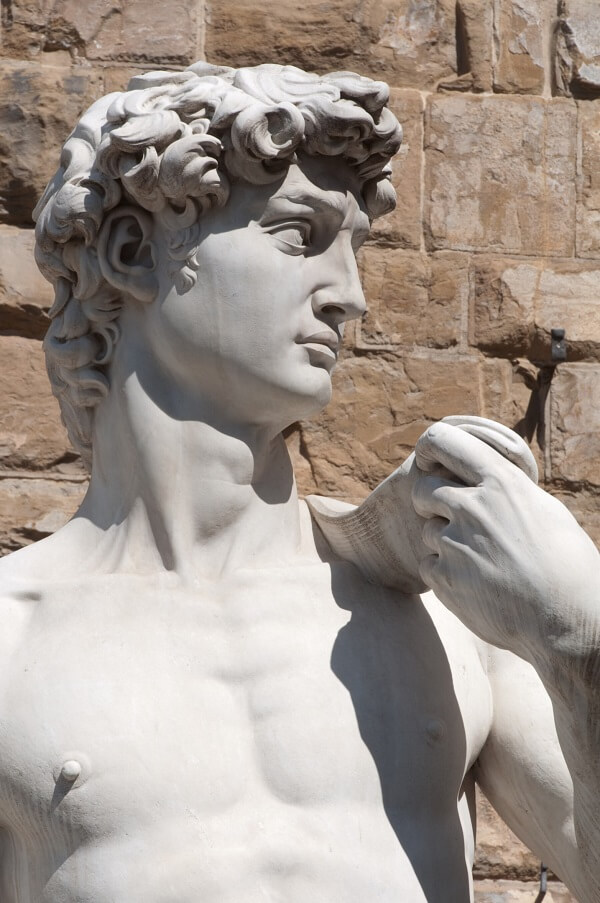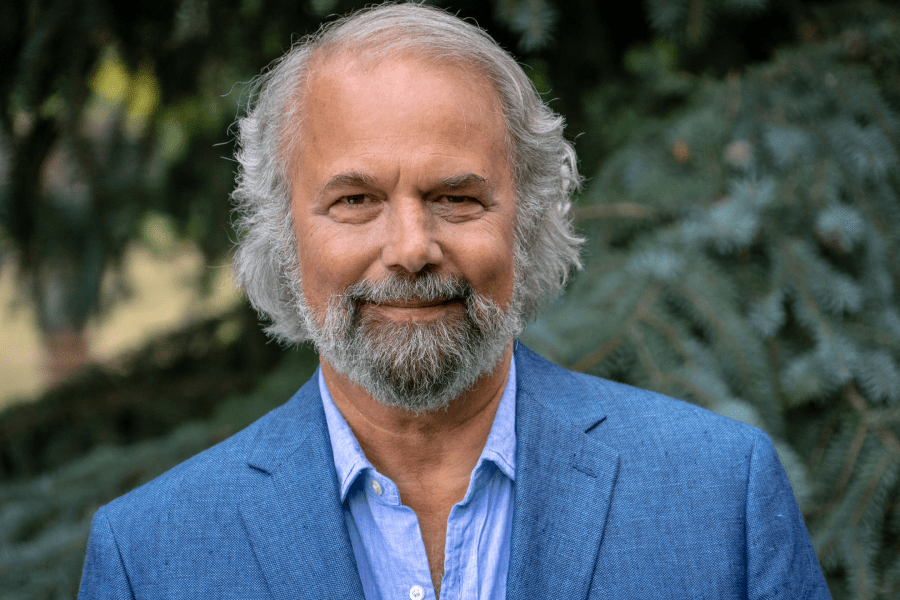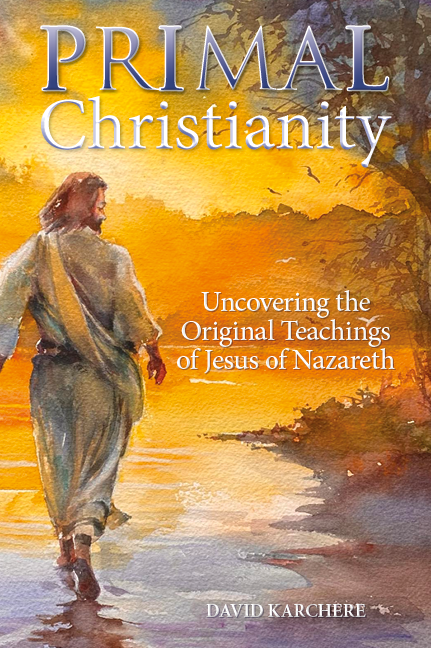Are you a person who has been curious about the life of Jesus of Nazareth, but at some point, got turned off by the way Christianity has portrayed him? Or turned off by the way a Christian church actually functioned?
But still, Jesus’ words in the gospels ring with the power of the pure Christ Spirit, a spirit of Love and compassion, with the essence of the holy rising from them. There it is, this spiritual secret, hidden in plain sight in the best-selling book of all time—the Bible. Secret only because the meaning of what he said is so often ignored, or mistranslated. Yet, there it is, an ancient but timeless truth that continues to resonate deeply in one’s life.
A Book Began to Write Itself in My Head
At Christmastime, 2023, I became intensely interested in what Jesus was really saying. I wondered what I would find if I could separate out the beliefs about him that have accumulated over the millennia, leaving only what he, himself, taught. I had read verses from the New Testament all my life. But I wondered, If you add it all up, what was he teaching?
As I began to explore the answer to that question, I was blown away. The plain meaning of his words told a simple truth. And the spirit of the Living Christ which he gave voice to pierced my heart anew. What a supremely loving man!
A book began to write itself in my head as I continued on my path of discovery. So I started to record my thoughts on my laptop. And that is what became my book on the original teachings of Jesus. I call it Primal Christianity simply because the word primal means first. And it was Jesus Christ, not Peter or Paul, who was the first Christian. Reading his words, you get the sense that he was bringing a teaching to humankind and that this was foremost for him. Like any teacher, and especially any spiritual teacher, his hope was that his students would learn.
The Real First Christian
As I read his gospel—his good news—I didn’t get the sense he was attempting to establish a church. He was bringing spiritual truth to the world. That’s different. He was doing something far more audacious than founding a new religion. He sought to change lives and change the world.
He was the first teacher of the faith he knew for himself—the first Christian. Don’t all other beliefs and practices of Christianity have to be evaluated in the light of what he said?
If religion is the process of connecting deeply and profoundly with the Divine, then perhaps you could say that Jesus Christ was helping people “get religion”. In that sense, he “took people to church.” But he wasn’t establishing the doctrine and dogma of a religious institution.
He taught not only that people should love God. He taught that God loves us. And he didn’t teach the fearful, superstitious kind of love that was so common in the ancient world. He taught a real love for the Divine that could be known and fulfilled in a human life by people around the globe.
The Figure Within the Marble Block

Michelangelo famously said this about the process of carving the sculpture of a human figure: The sculpture is already complete within the marble block before I start my work. It is already there, I just have to chisel away the superfluous material.
I thought about this relative to the face of God that Jesus showed to the world. That face has been encased in church dogma for centuries. I thought, What would happen if I found a way to chisel away all that has obscured the original Christ teaching he brought to the world?
So this is what I began to do. I researched the teachings and doctrine of those who came after Jesus, starting with the apostles Peter and Paul. I compared them point-by-point with what Jesus taught. In some cases, it agreed. In many cases, it didn’t.
Detective Work
Even before I began my journey of discovery, I had the general idea that most of Christianity had gone off course—that it lost the plot over the years. I felt like a detective—a Columbo of historical research. Document after document, from letters by the apostles to declarations of religious creeds, I found definitive clues as to what happened. There it is! That’s where it went off! That is not the same as what Jesus taught!
The Christian church has attempted to make itself bulletproof, wrapping itself in the doctrine that the pope can do no wrong and the belief that every word of the Bible—as it is in English—is the word of God. And so they’ve sought to ban any kind of spiritual curiosity or any meaningful discussion of scripture. The pursuit of any new discovery of the history of our faith—or even a deep understanding of one’s life—is often discouraged. Don’t think! That is the message all too often delivered by the church. Yet, the original Christian promised those who followed him that they would know the truth and that the truth would make them free. And how do you know the truth if you do not allow yourself to think?
The Ship of Christ Goes Off Course
I began to see Christianity as a ship. The original captain launched the ship 2,000 years ago. Soon, others navigated it into the strange waters of the ancient world. It went off course. The Roman Empire grabbed hold it of it and possessed it as its own. As the years went by, Christianity didn’t feel right to many of its followers.
Generation after generation of Christian navigators have tried to make a course correction. Protestants took the steering wheel and attempted a reformation of their religion to correct the excesses of those who had gone before them. Christians in America attempted to reinvigorate their faith through passionate belief and devout adherence to their ideals. But there have been few who found the primal faith of the first Christian, or who used the original map he gave to humanity to guide us to the fulfillment of our spiritual destiny.

The Lost Soul of Christianity

The concept of the “lost soul” of Christianity speaks to the idea that the modern faith has drifted away from its primal roots. In the early days, the Christian church was a vibrant community, brimming with compassion, spiritual vitality, and a profound sense of connection. It was vibrating powerfully with the spirit Jesus had brought to his followers. Over time, however, these core elements have been overshadowed by dogma and by teachings that contradicted Jesus’s message.
Mark Batterson, in his book Primal: A Quest for the Lost Soul of Christianity, delves into this very issue. He argues that to rediscover the lost soul of Christianity, we must embrace a more primal, raw, and authentic faith. This means stripping away the layers of tradition and dogma that have accumulated over centuries and returning to the simple, powerful teachings of Jesus.
I believe we have an opportunity to embrace the primal energy of Jesus’ message and let it guide us today.
Uncovering the Original Teachings of Jesus of Nazareth
And what was the original map Jesus showed the world? What were his essential teachings?
The gospels are full of Jesus’s self-help remedies available to anyone who would listen to him. These were teachings that were not just about who he was and why he came to earth. He told us who we are and why we have come to earth. And he told us how our destiny on this earth journey is fulfilled.
In so many ways, his teaching simply came down to this—love and knowledge. And he taught us not only that we should love. He taught that our love for God and for each other should be fulfilled. We have the opportunity to feel and experience that love—to know it and live it. And not only as the unrequited love of a lost soul who is miles away from the Divine. He taught a fulfilled love in which we not only know a love for God but also know that God loves us.
He taught people to believe, but he taught that it is our destiny to do more than believe. It is our destiny to know. You will know the truth, and the truth will set you free. Notice there is no limit he established to what we should know. It is a promise that we can know the truth of God, each other, and ourselves. We can know the truth of the reality in which we live.
Characteristics of Primal Christianity
Primal Christianity is marked by defining characteristics that harken back to the teachings of Jesus. At its heart, it is about knowing profound spiritual intimacy with the Divine and with other human beings. It embodies a deep sense of community and connection with others. This is not just about gathering together, but about forming genuine, compassionate relationships that reflect the love of God and all that it is.
This is not just about gathering together, but about forming genuine, compassionate relationships that reflect the love of the Creator that is in all people. This sense of community and connection is also seen in the spiritual practices of indigenous peoples, who often emphasize the importance of communal relationships and unique spiritual journeys.
Compassion and service to others are also central to primal Christianity. Jesus’ teachings were filled with calls to love and serve our neighbors, to show kindness and mercy. This primal faith is not just about belief. It is about knowing. And it is about living out what we know in practical, tangible ways.
Spiritual vitality is another key feature. Primal Christianity is about a personal, vibrant relationship with God, one that is full of passion and energy. It’s about experiencing faith in a way that is deeply personal and transformative.

Primal Christianity encourages a willingness to challenge traditional norms and embrace new discoveries. It’s about being open to the ongoing journey of faith, always seeking deeper understanding and connection.
Primal Spirituality
Jesus taught us the spirituality we are born with—our primal spirituality. Primal spirituality is a way of experiencing and expressing faith that is raw, authentic, and deeply personal. It’s characterized by a sense of wonder, awe, and curiosity about the Divine and the world around us. Our primal spirituality is not about adhering to rigid rules or rituals, but about reawakening to our heart connection with God and others and cultivating that awareness in our life.
Embracing our primal spirituality, there is a willingness to take risks and challenge traditional norms. It’s about seeking a deeper, more meaningful relationship with the divine, one that is full of passion, energy, and vitality. It calls us to live out our faith in ways that are genuine and life-giving.
Discovering Primal Christianity
So this is the journey I am on—discovering primal Christianity. My book, Primal Christianity, is a record of a portion of that journey. It is an exploration of knowledge and understanding. But more than that, it is a spiritual journey—an exploration of the primal spirituality that we share in common with all humankind.

I invite you on this journey with me. And if you are already on the journey, let’s go together. Let’s bring primal Christianity to the world.
If you want to read my book, you can find it here. Or on any Amazon site around the world.
And if you would like to subscribe to my free blog, The Pulse of Spirit, just click here.




